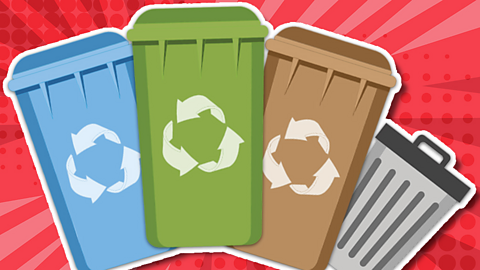
Welcome to The Regenerators.
Imagine a world where there’s no waste.
What if everything we buy is designed to last a very long time, and when it’s no longer usable, we can get rid of it easily or it can be turned into something new? That’s called a circular economy.
We don’t live in a circular economy yet, which means some of the things we buy can only be used once or aren’t designed to last a lifetime – and we generate a lot of waste. According to Defra, the average person in the UK creates around 400 kilograms of waste per year. Much of the waste ends up in landfill and produces greenhouse gas emissions, which contributes to climate change.
But don’t worry – there are easy ways you and your family can reduce how much stuff you throw away, and even save money.
Can these families keep their waste to a minimum?
Find out how The Clarkes, The Gardeners and The Kunchalas are attempting to become zero-waste heroes.
Girl: This pile I'm going to give to my cousins.
Boy 1: And this pile I'm keeping.
Parents (individually): Around 30 million tonnes of household waste.
Is generated in the UK every single year.
That's almost 400 kilograms per person per year.
Much of that waste ends up in landfills. Which creates around 19 million tonnes of greenhouse gas emissions each year.
Wow imagine that.
Boy 2: Wow.
Boy 3: Wow!
Parents (individually): That's a waste which we are generating.
Boy 2: Let's go check out our rubbish. It's really full and it stinks.
Parents (individually): We will show you how we go in a week.
Boy 2: Yeah!
Parents (individually): Right listen up guys, I've just gone to our local council website and this is some of the stuff that you can't recycle.
The plastic wrapping and the bubble wraps.
Pet food pouches, you're not allowed to recycle.
I didn't know that.
What about crisp packets?
We have been putting the crisp packets in the recycling, which we should not do.
Boy 1: This can't be recycled.
Parents (individually): No. Paper, I think this should go into the recycling rather than here.
Plastic where does that go?
Boy 2: It goes recycling.
Parents (individually): Well done, Leo.
Yeah, I think we can recycle this paper too, this one is.
Mummy should have gone to a charity shop there's a dress in here.
Boy 2: I have two of these guys.
Parents (individually): So what are you going to do with all these toys you don't want any more?
Boy 2: I will donate these to the charity.
Parents (individually): Yeah, you don't want this one or this one?
Girl: No.
Parents (individually): What do you think Mads, happy to give some toys to some new children?
Girl: Yeah!
Parents (individually): We've just come to drop these off please. Thanks a lot bye.
Boy 3: I actually shared some toys, what I didn't need more to like a few more children who are younger than me so they can actually use them.
Parents (individually): Just educating yourself a little bit more to what you can and can't actually recycle has been really good for us.
We totally revamped our waste. Our bin was still half full after two weeks. Our recycling we cut it down so much because we stopped using drinking bottled water.
I was always overfilling the bins, now I don't need to my lid actually shuts.
Check what you can and can’t recycle
Look up your local authority’s website to find out what you can and can’t put in your recycling bin. Some things you might think are recyclable, like pet food pouches, plastic bags, crisp packets and food wrapping, actually aren’t. If something isn’t recyclable, putting it in the wrong bin can contaminate the rest of the recycling and potentially send it to landfill.
Why not write down or print a list of what you can and can’t recycle and pin it above your bins? This can be a good reminder for when you or the kids aren’t sure which bin to use.
Donate items you no longer use to a charity shop
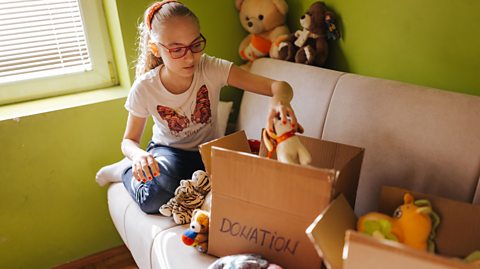
See if you have any books or toys that you no longer use and take them to a charity shop or sell them.
Try to avoid putting clothes in the recycling or refuse bin. If the clothes have holes in them or are not appropriate to be donated, put them in a separate bag with a label saying ‘rags’. Some charity shops will take rags, but it’s always good to check with them first.
Want to make money on the side? You can try organising a garage sale – just make sure you have the relevant permissions.
There are also lots of apps out there that you can use to sell or give away second-hand items, like Facebook Marketplace or Gumtree. Before you list your item, have a look and see what similar items have sold for in the past to help you price your item appropriately. You could also either include the postage cost in the price, or ask the buyer to collect it from your home.
If selling online, make sure you keep any conversations with potential buyers within the website or app, so if things go wrong, it’s easier to escalate it.
Swap or share
Try and get your kids into the habit of swapping books and toys with family and friends before buying new ones. You can start by just swapping a couple of things with a friend or your neighbour. It's as simple as putting what you want to swap in a bag and giving it to them – there's nothing fancy to it!
Libraries are also a great place to borrow books. It’s free, won’t take up space in your home and can help reduce your environmental impact as the books are shared with lots of people.
Save money by buying second-hand
If you do need to buy something new, check online or in a charity shop if you can get it cheaper by buying second-hand.
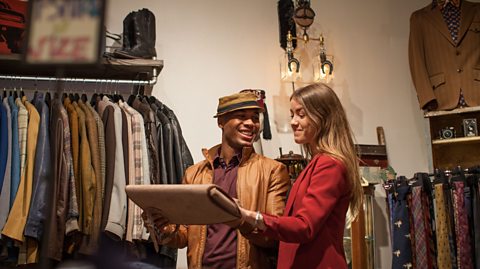
When it comes to buying online, make sure you check and understand what condition the item is in, from ‘brand new with tags’ to ‘used’. Ask for more photos or clarify the measurements if you need to. It's not impossible to find brand new items for nearly half the price on second-hand online platforms. You’d be surprised at what you could find!
Keep track of your weekly rubbish
Make a note of how many bin bags you throw away in a week (or how full your bins are), then the tips above to see if you can reduce the amount of stuff you throw away.
Take pictures so it’s easier to see how you get on, and share your journey on social media with the hashtag #TheRegenerators – we'd love to see it!
Green Classroom: What is the problem with plastic?
Films, quizzes and more to help primary school children learn about the environment.
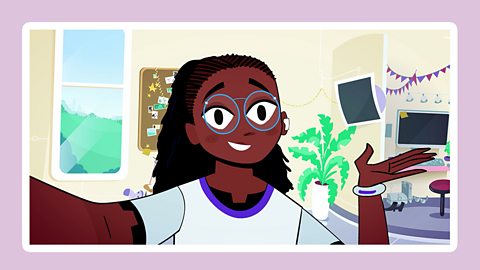
Make a difference
Discover more about the planet and how to protect it with the BBC.
Three water-saving tips to try at home
THE REGENERATORS
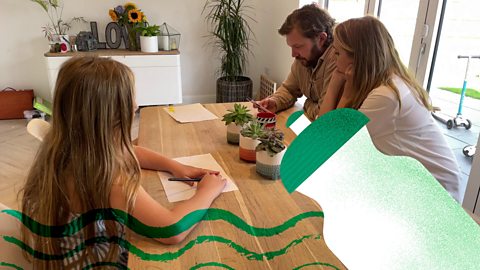
What is wish-cycling?
NEWSROUND
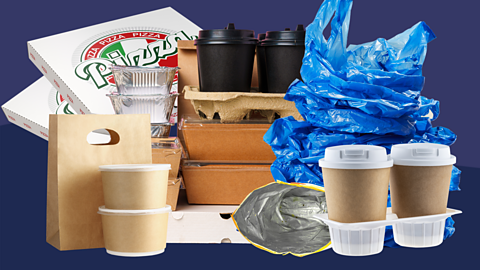
Return to the homepage
Back to The Regenerators
BBC BITESIZE

